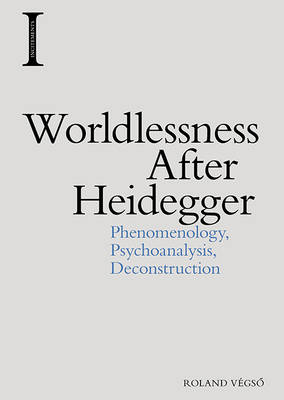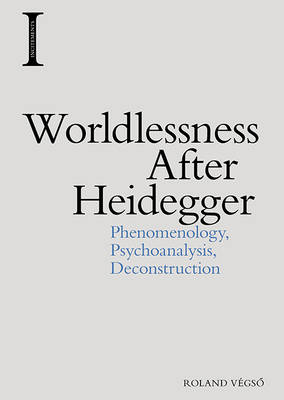
- Retrait gratuit dans votre magasin Club
- 7.000.000 titres dans notre catalogue
- Payer en toute sécurité
- Toujours un magasin près de chez vous
- Retrait gratuit dans votre magasin Club
- 7.000.0000 titres dans notre catalogue
- Payer en toute sécurité
- Toujours un magasin près de chez vous
Description
Roland Végső opens up a new debate in favour of abandoning the very idea of the world in both philosophy and politics. Opening with a reconsideration of the Heideggerian critique of worldlessness, he goes on to trace the overlooked history of this argument in the works of Hannah Arendt, Sigmund Freud, Jacques Lacan, Jacques Derrida and Alain Badiou. This critical genealogy shows that the post-Heideggerian critique of the phenomenological tradition remained limited by its unquestioning investment in the category of the 'world'. As a way out of this historical predicament, Végsö encourages us to create affirmative definitions of worldlessness.
Spécifications
Parties prenantes
- Auteur(s) :
- Editeur:
Contenu
- Nombre de pages :
- 336
- Langue:
- Anglais
- Collection :
Caractéristiques
- EAN:
- 9781474457613
- Date de parution :
- 15-01-20
- Format:
- Livre relié
- Format numérique:
- Genaaid
- Dimensions :
- 137 mm x 193 mm
- Poids :
- 430 g

Les avis
Nous publions uniquement les avis qui respectent les conditions requises. Consultez nos conditions pour les avis.






